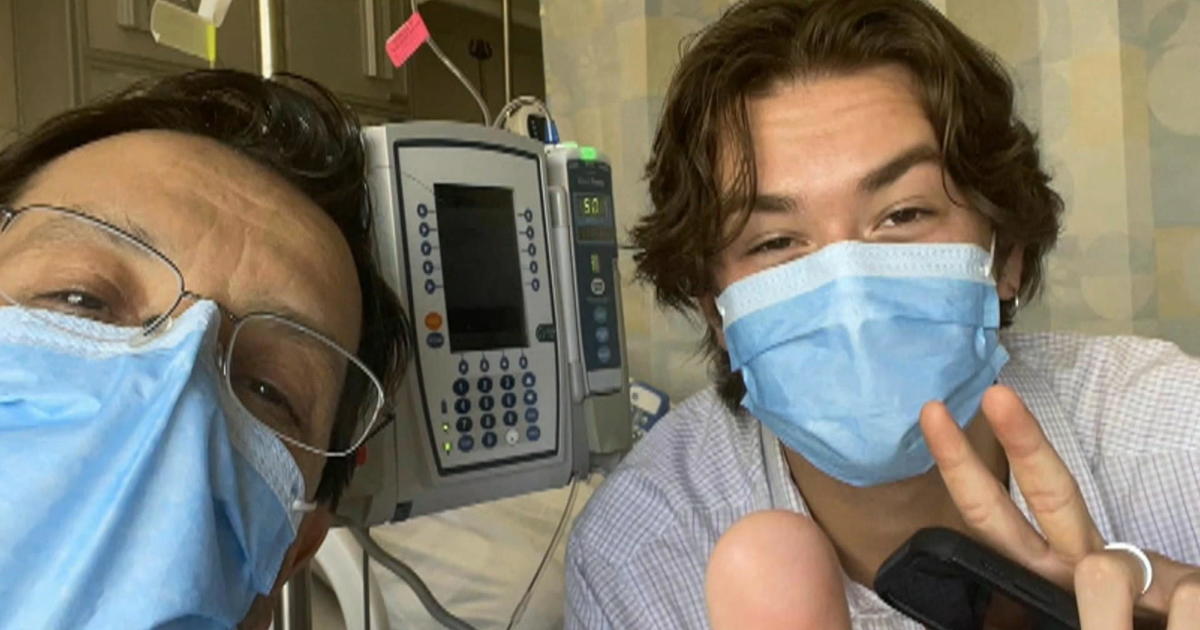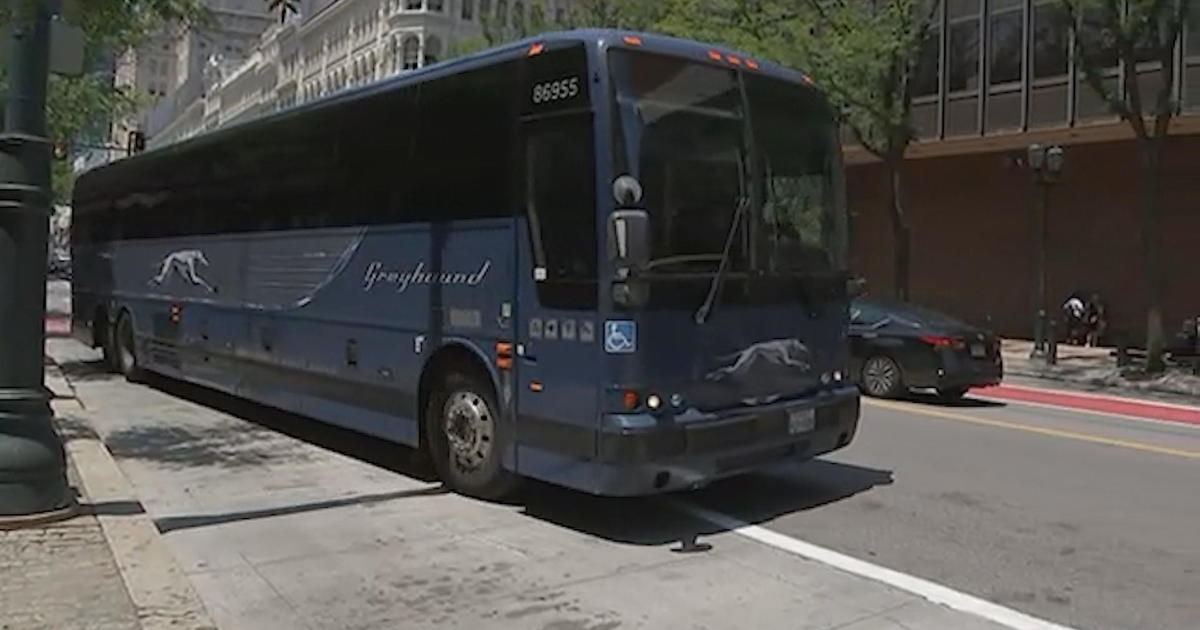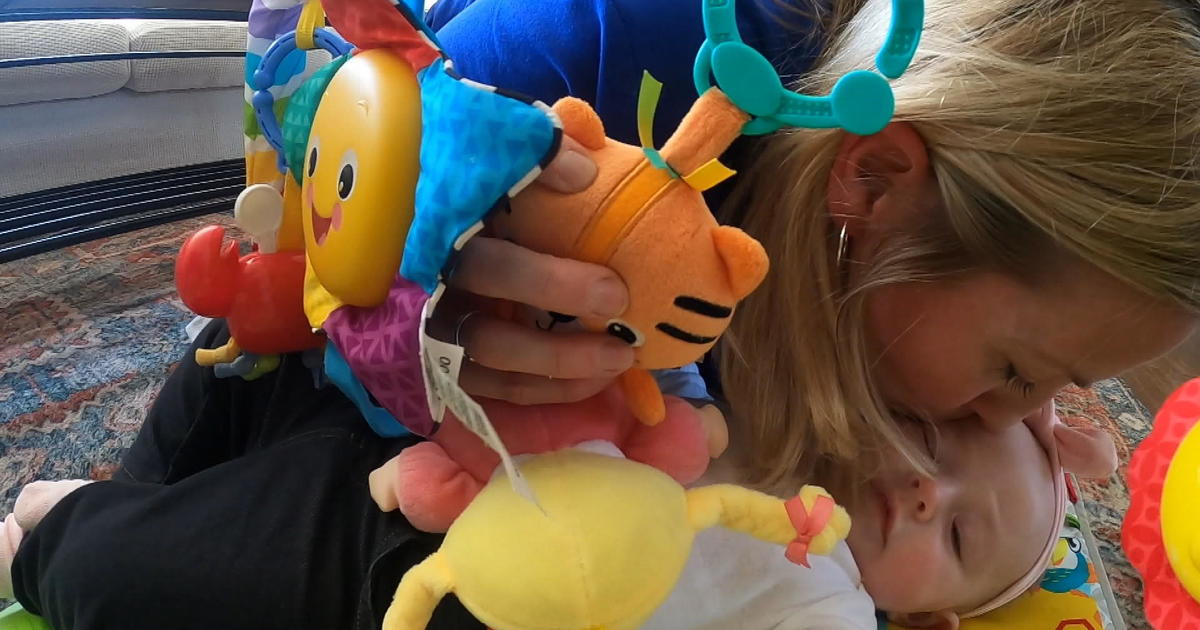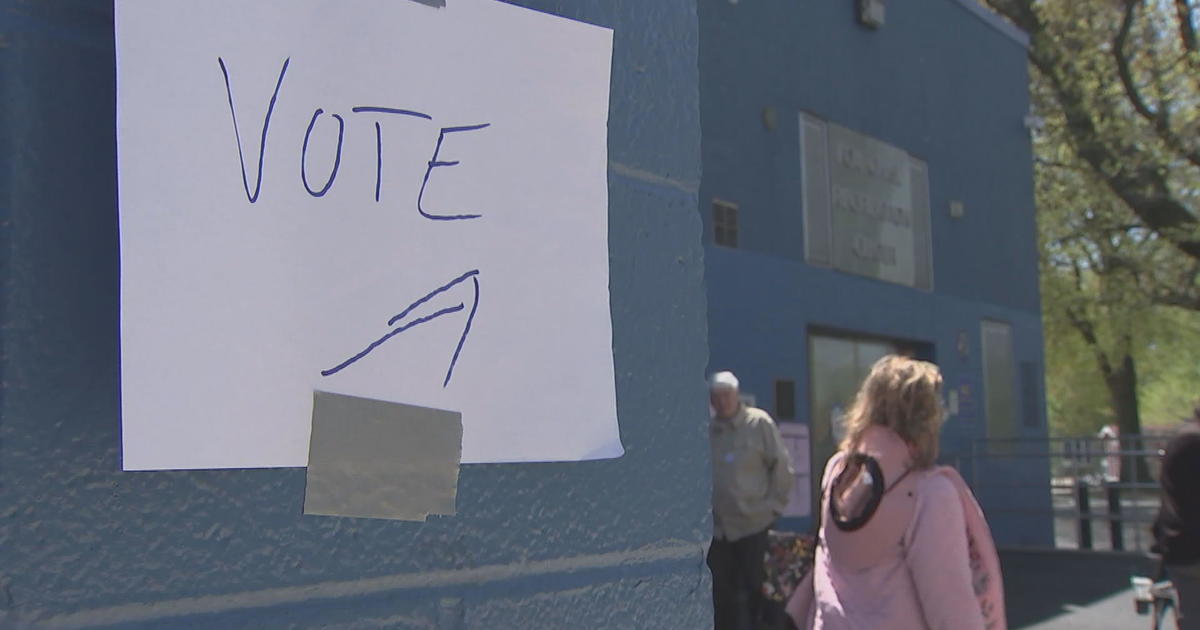Health Watch: Waking Up From A Coma With Unconventional Therapy
PHILADELPHIA (CBS) - Waking up from a coma with an unconventional therapy. It worked for one Chester County family. 3 On Your Side Health Reporter Stephanie Stahl shows you how it worked.
It was a bitter sweet wedding day for Kristen Baker. Her dream of walking down the aisle with her dad didn't happen because he was hospitalized, near death, in a coma.
"It was very terrifying not knowing if he's going to make it," said Kristen.
Her dad, 51-year-old Dave Davis, had a series of complications related to a surgical infection.
"We were really given no hope of his survival," said Ellen Davis, his wife.
Even though Dave was in a coma, the family held vigil at his bedside. He was unconscious, but they were talking anyway, mostly about the wedding, with a promise that it would be taped for him to watch.
And on day 13, Dave woke up, but wasn't able to speak because of a tracheotomy.
"He started pointing to the letter D," described Ellen. Dave was communicating with the alphabet written on a sheet of paper.
"I pointed to the D and V, and they stopped, and she thought I lost my mind," said Dave.
But once finished, pointing to D-V-D, they knew he wanted to see the wedding video.
"It's still tough," said Dave. He missed the wedding and had no concept of time, but he knew about the recording. Even in a coma, he must have heard something?
"Even though you may not remember anything, clearly you must have some cognitive ability to hear, to love," said Dave.
Andrew Parrott was also surrounded by love- and constantly stimulated, with sounds, smells, touch and movement. It's a therapy called coma stimulation. He was in a coma for three months.
"As a mother I wouldn't give up," said Terry Storms, Andrew's mother.
"Just the fact that she never left me was really amazing. It blows my mind, the love of a mother," said Andrew.
"By stimulating them you may improve their overall outcome," said Dr. David Prince, a pulmonary critical care physician at Bryn Mawr Hospital. He says there are different levels of a coma, and while there are no scientific studies proving stimulating coma patients helps wake them up, he's seen it work. He says patients have fewer complications, like memory loss.
"If you've been at the bedside and taken care of many patients and seen them recover you realize that it really does promote full recovery, said Dr. Prince.
Dave's on his way back, enjoying life with his family, with a new appreciation for the power of love, and the subconscious mind.
"Love my wife it's good to be alive," said Dave.
Doctors say coma stimulation won't work for everyone, especially on patients who are in a permanent vegetative state, where there is no hope they'll wake up or recover.
Reported by Stephanie Stahl, CBS 3



